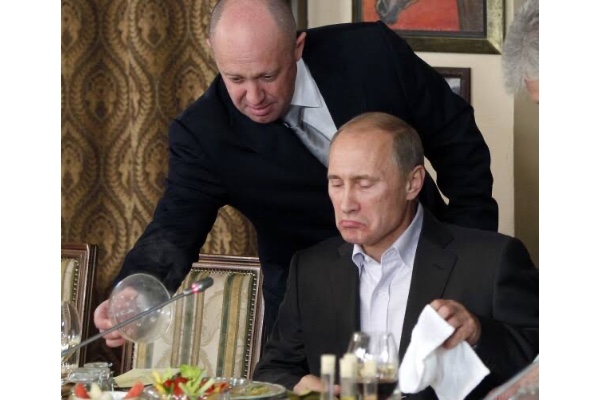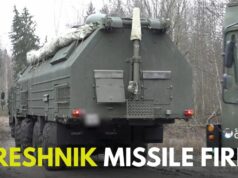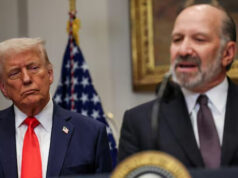A “talented person” who “made serious mistakes in life.”
That was how Russian President Vladimir Putin described the head of the mercenary Wagner Group, Yevgeny Prigozhin, who reportedly perished when his Embraer Legacy 600 jet ferrying him to St Petersburg from Moscow crashed in the Tver region northwest of the capital on August 23, killing all seven passengers and three crew on board.
Wagner co-founder Dmitry Utkin and financial head Valeriy Chekalov were also listed on the passenger manifesto, Russian authorities said.
One of the “serious mistakes” that Putin referred in his televised interview from his Kremlin home 24 hours later was obviously Prigozhin’s attempted insurrection in June, where Wagner forces marched on Moscow. Putin pledged to punish “the traitors.” However, the march was called off barely 200 km from the capital, following a surprising deal where Prighozin and his men moved to Belarus.
“Western media and officials are speculating that Putin was behind this but that theory isn’t sound,” argues Andrew Korybko, a Moscow-based American political analyst and journalist. “For starters, he publicly gave his word after the mutiny that he’d keep his end of the deal regarding whatever Wagner members decide to do (i.e. go to Belarus, join the Russian Armed Forces, retire, etc.).
“Second, this speculation appears designed to cast aspersions on Putin personally, specifically the notion that he’s a bloodthirsty tyrant who’ll knock opponents out of the sky in the middle of the Russian heartland,” Korybko, who specialises in the global systemic transition to multipolarity and is a member of the expert council for the Institute of Strategic Studies and Predictions at the People’s Friendship University of Russia, told StratNewsGlobal. “And third, both of these narratives combine into the larger one which suggests that Putin betrayed Prigozhin and Wagner, which could incite some of their supporters to commit acts of anti-state violence.”
Ben Dalton, former journalist and now a Russia expert at New America, where he has conducted extensive research on the Wagner group, has a different take. In an interview to Times Radio, a British channel, he said that if reports that Prighozin’s plane had been downed by a missile were true, “it’s hard to imagine that it is anything other than the Russian military, and that in turn implies that it was direct ‘top down’ action approved by Putin.” However, if the other theory that the plane exploded due to a bomb on board is correct, then it “widens the cast of potential perpetrators. Prighozin was a man with no shortage of enemies.”
What are the implications of Prigozhin’s death for the Wagner Group, which is highly active in Africa and other places where Moscow has strategic interests?
“It looks like the end of Wagner as we know it,” Dalton told StratNewsGlobal. “The remaining commanders lack Prigozhin and Utkin’s charisma and reputation and are unlikely to choose a course of action that poses a significant threat to the Kremlin. Whether they remain autonomous or get reincorporated into more directly MOD-controlled structures remains to be seen.”
However, “they’re too important to the Russian state to allow to lapse,” he added. “They also want to be seen as a reliable partner. So I think we’ll see a gradual transition of Wagner Group missions to more directly MOD-controlled formations. Prigozhin’s main benefit was his network of shell companies that obscured how the system works. They’ll need to figure out a new way of doing things.”
“Nothing will happen to it since the group’s activities will continue in Africa and elsewhere,” said Korybko. “This notion that one man was multi-managing dozens of teams in the field in real-time and that they’ll all now collapse is absurd.”
Soon after the plane crash, some of Prighozin’s supporters argued on Telegram that he was “well aware of Putin’s unforgiving nature”, and hence, like Putin, used doubles to confuse would be assassins. And therefore, it was possible he was not aboard the aircraft at all.
“If Prigozhin`s death is real – I would not exclude that his “assassination” was staged, given the state of affairs in Russia – it will have next-to-no impact on Russia`s activities in countries of the developing world (more specifically Sub Saharan Africa),” believes Sergey Sukhankin, Senior Research Fellow, Jamestown Foundation (Washington D.C. “In effect, the Ministry of Defense-associated bodies and PMCs (such as PMC Patriot) could take over Wagner`s activities and replace the group.”
According to the BBC, “Russian forensic experts are now reported to have started the victims’ identification, but Mr Putin said DNA tests would take time.”
Also see:
In a career spanning three decades and counting, Ramananda (Ram to his friends) has been the foreign editor of The Telegraph, Outlook Magazine and the New Indian Express. He helped set up rediff.com’s editorial operations in San Jose and New York, helmed sify.com, and was the founder editor of India.com.
His work has featured in national and international publications like the Al Jazeera Centre for Studies, Global Times and Ashahi Shimbun. But his one constant over all these years, he says, has been the attempt to understand rising India’s place in the world.
He can rustle up a mean salad, his oil-less pepper chicken is to die for, and all it takes is some beer and rhythm and blues to rock his soul.
Talk to him about foreign and strategic affairs, media, South Asia, China, and of course India.





